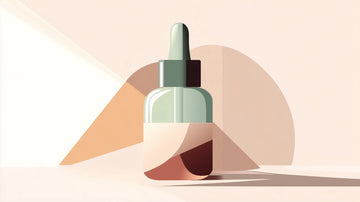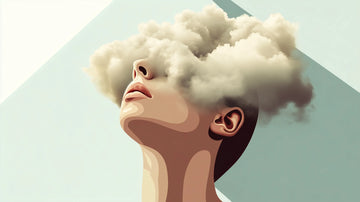From the age of 50, the body undergoes hormonal changes that can affect overall health and well-being. It becomes essential to understand these transformations to better manage them. Physical exercise plays a key role in hormonal balance, helping to mitigate the negative effects of these changes. This article presents the best exercises to improve hormonal balance after 50, while providing practical advice for a healthy life.
Key Points
- Regular exercise helps balance hormones and reduce the symptoms of menopause.
- Strength training is crucial for maintaining muscle mass and reducing abdominal fat.
- Cardio is beneficial for hormonal health and can be easily integrated into your daily routine.
- Relaxation techniques such as yoga can help manage stress, a key factor in hormonal balance.
- A healthy and balanced diet, rich in fiber and phytoestrogens, also supports hormonal balance.
Understanding Hormonal Balance After 50
Natural Hormonal Changes
Reaching the age of 50 is like entering a new phase of life with its share of transformations. Hormones, those little chemical messengers, play a central role in this transition. At this age, certain hormonal changes are inevitable. The levels of estrogen, progesterone, testosterone, and other hormones fluctuate, influencing various aspects of our health.
Impact on Global Health
These hormonal changes are not limited to just a few symptoms. They can impact our overall well-being, affecting our energy, our mood, and even our metabolism. It’s almost as if our body is trying to regain a new balance.
Signs of Hormonal Imbalance
It is not uncommon to experience certain symptoms when hormonal balance is disrupted. Among them, one can note:
- persistent fatigue
- Mood swings
- Unexplained weight gain
Listening to your body becomes essential to recognize these signals and act accordingly.
By becoming aware of these changes, we can better understand our body and adopt strategies to regain our balance. It is a time to be compassionate towards oneself and to give oneself the time and means to adapt our lifestyle to these new realities.
The Importance of Physical Exercise for Hormonal Balance
So, as we all know, exercise isn’t just good for the body, but also for the hormones. When we move, our body releases endorphins, those little happiness molecules that boost our energy. Moreover, physical activity helps regulate cortisol, the stress hormone. Less stress is always beneficial for hormonal balance, especially after 50.
Moving after 50 isn’t just about staying in shape. It helps maintain muscle mass, improves bone density, and boosts our mood. Here are some benefits:
- Reduces the risk of cardiovascular diseases.
- Improves mobility and flexibility.
- Promotes better sleep.
Attention, not all exercises are good for us. We must avoid those that are too intense or that put too much pressure on the joints. Here are some types of exercises to avoid:
- High-impact exercises such as skipping rope.
- The sudden and rapid movements.
- Heavy loads without supervision.
Taking care of our body also involves knowing how to listen to its limits. We are not trying to hurt ourselves, but rather to feel good, in harmony with ourselves.
Muscle Strengthening Exercises to Reduce Abdominal Fat
Why is Muscle Strengthening Crucial
Strength training isn't just for bodybuilders. After the age of 50, our bodies change and we lose muscle. It's not ideal, especially when trying to avoid belly fat. Doing strength exercises helps keep our muscles active and burn more calories, even at rest. It can really help reduce abdominal fat.
Examples of Effective Exercises
We don't need a high-tech gym to get started. Here are some exercises we can do at home:
- Push-ups: A classic for strengthening the upper body.
- Squats: Great for legs and glutes.
- Planks : Perfect for working the abs and the back.
These exercises use our own weight to create resistance, and it’s already super effective.
Advice for Starting Safely
We're starting slowly, no need to rush. Here are some tips for a good start:
- Listen to your body: If it hurts, we stop immediately.
- Take breaks: Do not forget to rest between sessions.
- Consult a Pro: If you are not sure, ask for the advice of a coach or a doctor.
We're here to take care of ourselves, not to hurt ourselves. Every little step counts, and we're all in this journey toward better health together.
The Role of Cardio in Improving Hormonal Balance
The Benefits of Cardio for Hormonal Health
So, cardio is not just about sweating. It also has an effect on our hormones. Doing cardio regularly can help balance hormone levels, especially those that control stress such as cortisol. Additionally, it boosts endorphins, those happiness hormones that make us feel good. And it also helps regulate insulin, which is extremely important after the age of 50.
How to Integrate Cardio into Your Routine
We can start slowly; there's no need to dive right into a marathon. Here are some ideas:
- Walking 30 minutes a day is already not bad.
- Riding a bicycle is nice and it's a change.
- Swimming, if we have a pool not too far away.
The important thing is to find what we like and do it regularly.
Common Errors to Avoid
Well, there are also things to avoid. For example, there's no need to push yourself when you're tired—it doesn't do any good. You should also avoid always doing the same exercise, otherwise you'll get bored and give up. And then, make sure to stay well-hydrated, especially if you're doing cardio outdoors.
Moving is good for both the body and mind. You feel better, more energetic, and it helps keep our hormones balanced. It's not always easy to start, but once you get into the groove, you never regret it.
Relaxation Techniques to Reduce Hormonal Stress
The Impact of Stress on Hormones
Stress has a direct effect on our hormonal balance. It can lead to imbalances that affect our mood, our sleep, and our overall health. In fact, high levels of stress can increase cortisol, a hormone that, when in excess, can cause health problems.
Effective Relaxation Practices
To counter these effects, here are some relaxation techniques we can adopt:
- Meditation and Deep Breathing : These practices help calm the mind and reduce anxiety. Dedicating a few minutes each day to meditation can make a big difference.
- Yoga: By combining movement and breathing, yoga helps to release tension and improve our overall well-being. Specific postures can also help to balance hormones.
- Epsom Salt Baths: The magnesium contained in Epsom salt helps to relax muscles and reduce stress. It is an excellent routine to incorporate before bedtime.
Create a Relaxation Routine
To integrate these practices into our daily life, we can follow these simple steps:
- Schedule moments of relaxation: Reserve time each day for relaxing activities.
- Establish a calm environment : Create a space conducive to relaxation, away from distractions.
- Practice regularly : Regularity is key. Even a few minutes a day can have a positive impact.
By adopting these techniques, we can not only reduce our stress but also improve our hormonal balance and our quality of life. Let us not forget that every little step counts and that we all deserve to feel good in our body and mind.
Adopt a Healthy Lifestyle to Support Hormonal Balance
The Importance of a Balanced Diet
We all know that what we eat matters. But after 50, it's even more true. Eating a balanced diet is key. We're talking about reducing carbohydrates, incorporating more fiber, and stocking up on cruciferous vegetables like broccoli and cauliflower. These foods help regulate our hormones and maintain our energy. And let's not forget proteins and healthy fats, such as olive oil or avocados. It makes all the difference.
The Role of Sleep in Hormonal Regulation
Sleeping isn’t just about closing your eyes and waiting for morning to arrive. It’s vital for our hormones. A good sleep helps regulate cortisol, that stress hormone which can play tricks on us. Consider creating a relaxing routine before going to sleep, such as reading a good book or listening to soft music.
Avoid Endocrine Disruptors
Endocrine disruptors are kind of the villains of the story. They hide in plastics, cleaning products, and even in some cosmetics. To avoid them, one can opt for organic products and replace plastics with glass. It's a small change that can have a huge impact on our hormonal health.
To maintain a healthy hormonal balance, it is essential to adopt a balanced lifestyle. This includes a nutrient-rich diet, regular exercise, and proper sleep. By taking care of your body, you can improve your overall well-being. To learn more about our natural and effective solutions, visit our website and discover how we can help you live better!
Conclusion
In conclusion, taking care of your hormonal balance after 50 is essential for maintaining good health. By incorporating suitable exercises, a balanced diet, and stress management techniques, you can improve your overall well-being. Remember that every little change counts and can have a positive impact on your life. Be kind to yourself and listen to your body. With patience and determination, you can navigate this period of transition with serenity and confidence.
Frequently Asked Questions
What exercises are best for hormonal balance after 50?
Strength training exercises, cardio, and relaxation techniques are very beneficial.
How does physical exercise help balance hormones?
Exercise regulates metabolism, reduces stress, and improves blood circulation, which promotes a better hormonal balance.
Are there exercises to avoid after 50?
Yes, it is advisable to avoid high-impact activities that can cause injuries, such as jumping or long-distance running.
What is the importance of a balanced diet for hormonal balance?
A balanced diet provides the necessary nutrients to support hormonal health and reduce the symptoms of imbalance.
How does stress influence hormonal balance?
Stress increases cortisol, which can disrupt other hormones and lead to health problems.
What are the signs of a hormonal imbalance after 50?
The signs include mood swings, sleep problems, changes in weight, and persistent fatigue.






